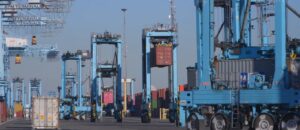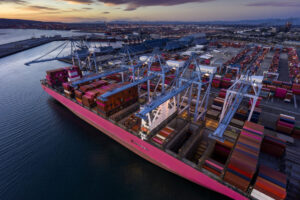Whether it is the retrofitting of crane automation software, gate system optimisation, or the launch of a comprehensive TOS, the message is clear: ensure all stakeholders are in the loop, every step of the way.
This was the resounding message at Port Technology International’s latest webinar, How to Upgrade your Terminal Operator’s Processes, Legacy Systems and Operations.
Rich Ceci, Senior VP of Technology and Projects at Virginia International Terminals, put it clearly: “All projects depend on proper communications. Everyone in your company gets a paycheck – we take daily meetings where everyone is invited to attend.
“I think you need to make sure everybody knows what’s happening all the time.”
No more present was this support than from Matthew Wittemeier, Senior Manager International Marketing and Customer Relations, at Inform.
Wittemeier’s 16-step how-to presentation on terminal upgrades levied the Tortoise and the Hare analogy when it comes to system upgrades: “Take it slowly and avoid a ‘Big Bang’ upgrade rollout when you involve end users in the overall process,” he said. “Rich [Ceci] has a key super user in a terminal upgrade. This is something we also see when deploying software and it’s crucial we’re involving end users early.”
Whilst Ceci and Wittemeier aligned on bringing all users in on a service upgrade, the two diverged in opinion on staff training – notably when to start it. “Plan to train the real users as late as possible,” Ceci argued. “Too much exposure early will mostly be forgotten when they go back to their day job.”
Wittemeier, in contrast, said: “The system is only going to be as strong as the end user. TOS deployment in Europe, for example, takes time to install in the brain for users.
“This isn’t to say we prefer day one training – it all needs to linger towards the end – but staff training in an upgrade is something that should be considered in advance to going live.”
The importance that all stakeholders are engaged throughout a terminal upgrade was echoed by other key speakers at the event, including Michael McMinn, VP of Engineering at ABB Ports.
McMinn highlighted how crucial it is, at the coalface of yard upgrades, to understand customer demand.
“The goal is to be efficient, sustainable, keep costs down, and operations running,” he explained.
“For example, we have to understand traffic in a yard during the revamp. How does traffic that flows off the street and into the gate not back up into the streets? Understanding these types of things will shed light on impact of how to best transition during upgrade operations.”
In ensuring that every variable and differing user is thought through, considered and level-headed planning was a vivacious theme throughout the webinar.
Uno Bryfors, Senior VP, ABB Ports, highlighted the benefits of the slow and steady approach in his presentation.
ABB Ports has been instrumental in automation upgrades at various locations including Tianjin Port in China, DP World’s Jebel Ali T2, and HHLA Container Terminal Burchardkai (CTB) in Hamburg.
Bryfors noted that all the presentations shown during the webinar were heavily focused on planning and preparation when it comes to system upgrades.
“This is really key in all of these types of activity: planning, planning, planning. Get everyone onboard!”
John Rosen, CTO at P5 Infrastructure, bookended the planning and training call from a simplicity angle. “Using a product off the shelf and not bringing the wrong baggage is very important,” he explained.
Rosen’s team at the Fenix Marine Services upgrade in Los Angeles, installing four new Ultra Large Container Ship (ULCS) Ship-To-Shore Cranes and a revamped Gate System, focused “at every turn” to install upgrades as is, minimising customisation and crystalising the key details of an upgrade for staff.
“Make deployment phases as small as possible,” he argued. “Bring stakeholders in early for training for team buy-in and exposure. Get some feedback to make them part of the team.”
The key takeaway for a terminal operator upgrading its system, then, is to be resolute in your planning and communication.
Whether it is at the ground-level installing paperless gate management software, to executive-level meetings of the launch of a new TOS, send the message far and wide: we are inclusive, we are listening, and every stakeholder counts. That is how you deliver a successful system upgrade.








